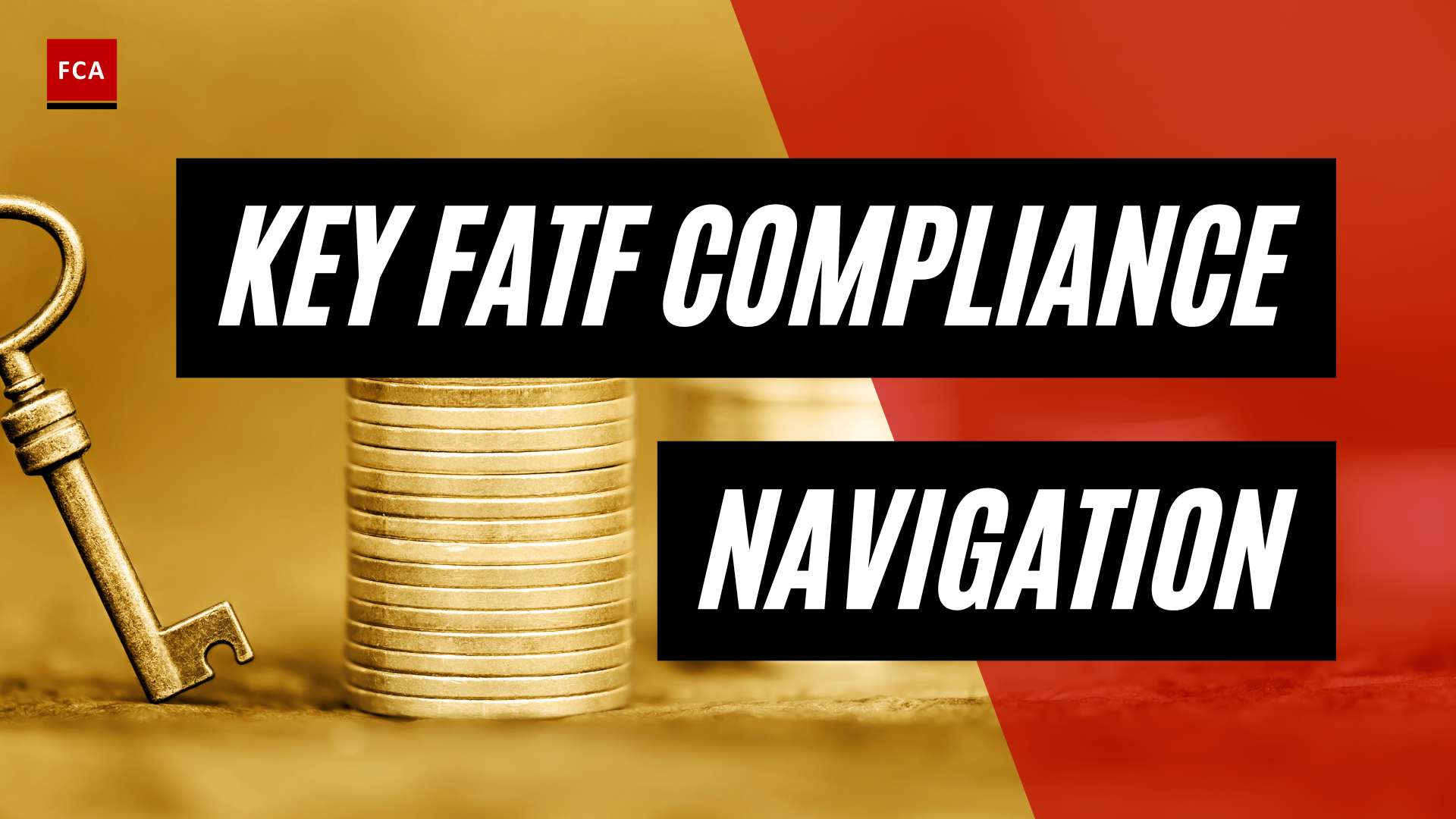Salaries in the AML Field
In the field of Anti-Money Laundering (AML), salaries can vary depending on various factors such as job title, certifications, location, and industry. Understanding the salary landscape is essential for professionals working in compliance, risk management, anti-money laundering, and anti-financial crime. This section provides an overview of AML salaries and the factors that can influence them.
Overview of AML Salaries
According to salary data from PayScale, AML professionals can earn competitive salaries across different job titles. The salary range can vary based on factors such as experience, education, and the organization’s size and industry. It is important to note that salaries can also be influenced by regional factors, such as cost of living and demand for AML professionals.
Here is a glimpse of various job titles in the AML field and their corresponding salary ranges:
| Job Title | Salary Range |
|---|---|
| AML Analyst | $47,000 – $83,000 |
| AML Specialist | $49,000 – $100,000 |
| AML Manager | $68,000 – $129,000 |
| AML Director | $91,000 – $185,000 |
| AML Compliance Officer | $50,000 – $118,000 |
Figures courtesy of PayScale
It’s important to note that these figures represent median salaries, and actual salaries may vary based on factors such as experience, location, and industry. For a more comprehensive understanding of AML salaries, consider referring to AML salary surveys and AML salary guides specific to your region and industry.
Factors Affecting AML Salaries
Several factors can influence the salaries in the AML field. These factors include:
- Experience and Education: AML professionals with more experience and advanced degrees may command higher salaries. As professionals gain more expertise in the field, they become more attractive to employers and can negotiate higher compensation.
- Organization Size and Industry: The size of the organization and the industry it operates in can impact AML salaries. For example, larger financial institutions may offer higher salaries to attract and retain top AML talent. Similarly, industries such as banking and finance may have higher salary ranges compared to other sectors.
- Regional Differences: AML salaries can vary based on geographic location and the local job market. Cities with higher costs of living or areas with a higher demand for AML professionals may offer higher salaries to compensate for these factors.
- Complexity of AML Roles: AML roles can vary in complexity, with more senior positions requiring advanced knowledge and skills. Job titles such as Chief Risk Officer, Director of Risk Management, and Compliance Manager often come with higher salaries due to the level of responsibility and expertise required.
- Certifications and Specializations: Holding industry-recognized certifications can enhance career prospects and potentially lead to higher salaries. These certifications demonstrate a commitment to professional development and expertise in the AML field.
Understanding the various factors that can influence AML salaries is crucial for professionals seeking career progression and compensation growth in the field. By considering these factors and staying informed about industry trends, individuals can make informed decisions regarding their AML career paths and salary expectations.
Highest Paying AML Job Titles
In the field of Anti-Money Laundering (AML), certain job titles are known to offer higher salaries compared to others. These roles often require extensive experience, deep technical skills, and a comprehensive understanding of AML regulations and practices. The highest paying AML job titles include the Chief Risk Officer, Director of Risk Management, and Compliance Manager.
Chief Risk Officer
The Chief Risk Officer (CRO) is one of the most prestigious and highly compensated positions in the AML sector. The CRO is responsible for overseeing the organization’s risk management practices, including AML and financial crime prevention. This role requires a deep understanding of regulatory requirements, industry best practices, and the ability to develop and implement effective risk management strategies.
According to data from ZipRecruiter, the average annual salary for a Chief Risk Officer in the AML field ranges from $141,250 to $175,500 (ZipRecruiter). The salary for this role may vary depending on factors such as the size and complexity of the organization, industry, and geographic location.
Director of Risk Management
The Director of Risk Management plays a crucial role in developing and implementing risk management frameworks and strategies within an organization. They are responsible for identifying and mitigating potential risks, ensuring compliance with AML regulations, and overseeing the organization’s risk management programs.
This position often requires significant experience and expertise in AML and risk management. The average annual salary for a Director of Risk Management in the AML field falls within the range of $141,250 to $175,500, based on data from ZipRecruiter (ZipRecruiter).
Compliance Manager
Compliance Managers with expertise in AML play a vital role in ensuring that organizations adhere to AML regulations and implement effective compliance programs. They are responsible for developing and maintaining AML policies, training employees on AML requirements, and conducting internal audits to assess compliance.
The average annual salary for a Compliance Manager in the AML field is in the range of $141,250 to $175,500, according to data from ZipRecruiter (ZipRecruiter). The salary offered for this role may vary based on factors such as the size and complexity of the organization, industry, and location.
It’s important to note that salaries in the AML field can vary based on factors such as geographical location, organization size, industry, and the level of expertise possessed by the individual. These highest paying job titles represent the top-tier positions in terms of compensation within the AML sector. Aspiring professionals in the field of AML may consider these roles as they progress in their careers and gain the necessary experience and qualifications.
Salaries in AML by Certification
Certifications play a significant role in the field of anti-money laundering (AML) and can have a positive impact on earning potential.
AML Salaries in Specific Locations
When it comes to salaries in the Anti-Money Laundering (AML) field, there can be significant variation based on geographic location. In this section, we will explore the salaries in two specific locations: Singapore and the United States.
AML Salaries in Singapore
Singapore is known as a global hub for AML due to its strict regulations and focus on compliance. The demand for experienced AML professionals in Singapore has led to competitive salary ranges in the industry. According to Investopedia, salaries for AML positions in Singapore range from approximately $160,000 to $250,000 per year.
Within the AML field, compliance managers with AML expertise in Singapore can earn salaries ranging from $180,000 to $250,000 annually, showcasing the high-paying nature of these roles within the industry (Investopedia). The demand for experienced professionals in Singapore’s financial sector has driven these competitive salary ranges.
As banks and financial institutions place increasing emphasis on compliance and risk management, AML roles, particularly in cities like Singapore, continue to offer high-paying job opportunities for professionals in the field (Investopedia). Singapore’s status as a global financial center contributes to the demand for skilled AML professionals and the corresponding salaries offered.
AML Salaries in the United States
In the United States, the salary ranges for AML professionals can vary based on factors such as organization size, industry, and region. AML analysts in the United States, for example, may earn higher salaries compared to those in other locations due to differences in demand and the regional cost of living.
While specific salary ranges can vary, the highest-paying roles in the AML field tend to be held by seasoned professionals who have accumulated deep technical skills and extensive industry knowledge. Job titles such as Chief AML Officers or heads of financial crime are among the most prestigious and highly compensated positions in the AML sector.
It’s important to note that the banking sector, particularly global systemically important banks (GSIBs), often pays the highest salaries to AML professionals due to the significant regulatory requirements and the scale of their operations. The demand for skilled AML professionals in these institutions contributes to the competitive compensation packages offered.
Understanding salaries in specific locations is essential for professionals considering a career in AML. While Singapore offers lucrative opportunities due to its status as a financial center and strict AML regulations, other regions, such as the United States, offer varying compensation based on factors like demand and industry focus. To gain a more comprehensive understanding of AML salaries, it’s beneficial to consult AML salary surveys and salary guides specific to your region and industry.
Career Opportunities in AML
Working in the field of Anti-Money Laundering (AML) offers various career opportunities that span different roles and responsibilities. Professionals in this field play a crucial role in combating financial crime and ensuring regulatory compliance. Let’s explore some of the key career opportunities in AML:
AML Compliance Officer
One of the sought-after roles in the fight against financial crime is that of an AML Compliance Officer. These professionals are responsible for ensuring regulatory compliance, conducting risk assessments, developing policies, and monitoring transactions for suspicious activity. A deep understanding of AML laws and regulations, analytical skills, and effective communication are essential for success in this role (FasterCapital).
Financial Crime Investigator
Another exciting career option in AML is that of a Financial Crime Investigator. These professionals work closely with law enforcement agencies to uncover and prevent illicit financial activities. They analyze transactions, identify suspicious behavior patterns, and gather evidence for criminal investigations. Strong investigative skills, attention to detail, and the ability to think critically are crucial for success in this role (FasterCapital).
AML Technology Specialist
With the rapid advancements in technology, there is a growing need for professionals with expertise in AML technology solutions. A career as an AML Technology Specialist involves utilizing advanced technologies like artificial intelligence and machine learning to enhance AML systems. These specialists work on improving the detection and prevention of financial crime by leveraging innovative technological solutions. A solid understanding of AML processes, analytical skills, and knowledge of emerging technologies are essential for this role.
To excel in the field of AML, professionals often pursue AML certifications. These certifications validate their expertise and demonstrate a commitment to professional development. Continuous training through conferences, workshops, and webinars can provide valuable insights and networking opportunities in the ever-evolving field of AML (FasterCapital).
It’s important to note that the highest-paying roles in the AML field are often occupied by seasoned professionals who have accumulated deep technical skills and extensive industry knowledge. Job roles such as Chief Risk Officer and Director of Risk Management are among the most prestigious and highly compensated positions in the AML sector. As professionals progress in their AML careers, they may have opportunities to take on leadership roles and contribute to shaping the future of AML operations.
By exploring these career opportunities in AML, professionals can choose a path that aligns with their interests and strengths. Continual learning, staying up-to-date with industry trends, and seeking professional certifications can help individuals advance their careers and make a meaningful impact in the fight against financial crime.
Factors Influencing AML Salaries
When it comes to salaries in the Anti-Money Laundering (AML) field, several factors come into play that can significantly impact the compensation of professionals. Understanding these factors is essential for individuals seeking to pursue a career in AML and for organizations looking to attract and retain top talent. The key factors influencing AML salaries include organization size and industry, regional differences, and the complexity of AML roles.
Organization Size and Industry
The size of the organization and the industry it operates in play a crucial role in determining AML salaries. Larger organizations, particularly global systemically important banks (GSIBs), often lead in paying the highest salaries to AML professionals. This is due to the significant regulatory requirements and the scale of their operations, which creates a robust demand for skilled AML professionals in these institutions (McKinsey).
Furthermore, different industries have varying levels of AML risk and regulatory requirements. Industries such as banking, financial services, and fintech organizations often have more complex and demanding AML programs, leading to higher salaries for AML professionals compared to other sectors.
Regional Differences
Salaries for AML professionals can vary significantly based on geographical location. Factors such as demand for skilled professionals, cost of living, and local market conditions all contribute to regional differences in AML salaries. For example, AML analysts in the United States tend to earn higher salaries compared to those in other locations due to differences in demand and regional cost of living.
It’s important for AML professionals to consider regional dynamics when evaluating salary expectations and potential career opportunities. AML salaries may vary not only between countries but also within regions or cities due to local market factors.
Complexity of AML Roles
The complexity of AML roles also influences salaries within the field. AML professionals who hold more senior positions and have accumulated deep technical skills, industry knowledge, and experience tend to command higher compensation. Job roles such as Chief AML Officers or Heads of Financial Crime are among the most prestigious and highly compensated positions in the AML sector.
Moreover, the complexity of the investigations and analysis conducted by AML professionals can also impact salary levels. Roles such as AML investigators, who are on the frontlines of reviewing and analyzing potentially suspicious transactions, may receive different rates based on the complexity of the investigations they handle and their level of expertise.
It’s worth noting that in addition to base salaries, incentives and bonuses are commonly used to attract and retain top AML talent. These financial incentives can significantly boost the total compensation for AML professionals and serve to reward exceptional performance in combating financial crimes.
By considering factors such as organization size, industry, regional differences, and role complexity, both individuals and organizations can better understand the various elements that influence AML salaries. This understanding can inform career decisions, salary negotiations, and talent acquisition strategies in the dynamic and evolving field of AML.
Additional Compensation in AML
In the field of Anti-Money Laundering (AML), professionals not only receive base salaries but also additional compensation in the form of incentives and bonuses. These financial incentives play a significant role in attracting and retaining top talent in the AML sector and can substantially boost the total compensation for AML professionals. Let’s explore the two key components of additional compensation in AML: incentives and bonuses, as well as the total compensation package.
Incentives and Bonuses
Incentives and bonuses are common practices in the AML field to reward exceptional performance and motivate professionals to combat financial crimes effectively. These additional compensation components can vary based on individual and organizational achievements, as well as the overall success of AML programs.
The specific structure and payout of incentives and bonuses can differ across institutions and roles. High-performing AML professionals who consistently meet or exceed their targets may be eligible for larger financial rewards. Institutions may also implement discretionary bonuses to recognize outstanding contributions and encourage continued excellence in AML efforts.
Total Compensation in AML
Total compensation in the AML field encompasses the combination of base salaries, incentives, and bonuses. The highest-paying roles in AML tend to be occupied by seasoned professionals who have accumulated deep technical skills and extensive industry knowledge (McKinsey). These roles, such as Chief AML Officers or heads of financial crime, are among the most prestigious and highly compensated positions in the AML sector.
It’s important to note that salaries and additional compensation can vary significantly across institutions, industries, and regions. Global systemically important banks (GSIBs) in the banking sector often lead in paying the highest salaries to AML professionals due to the significant regulatory requirements and the scale of their operations (McKinsey).
To gain a better understanding of salaries and compensation trends in the AML field, professionals can refer to industry-specific salary surveys and compensation guides. These resources provide valuable insights into the range of salaries, bonuses, and incentives offered across different AML job titles and levels.
When considering a career in AML, it’s essential to evaluate the total compensation package, including base salary, incentives, and bonuses. A comprehensive understanding of the remuneration structure can help professionals make informed decisions about their career progression and financial goals in the AML sector.
Keep in mind that not only do salaries differ across institutions, but rates for specific roles, such as AML investigators, can also vary based on the complexity of the investigations they conduct and their level of expertise. It’s crucial to consider factors such as organization size, industry, regional differences, and the complexity of AML roles when assessing compensation opportunities in the AML field.
In conclusion, additional compensation in the AML field, including incentives and bonuses, plays a significant role in recognizing and rewarding the efforts of AML professionals. Total compensation packages, which encompass base salaries along with additional compensation components, vary based on individual performance, organizational success, and industry factors. Professionals interested in pursuing a career in AML should research industry-specific salary surveys and compensation guides to gain insights into salary ranges and compensation trends.









